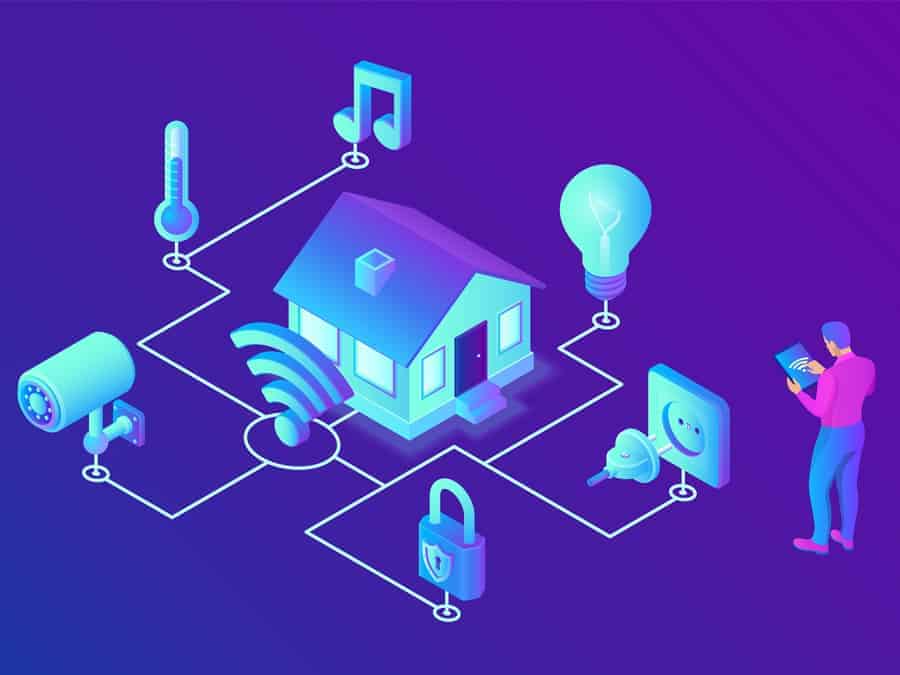How Much Data Does Online Gaming Use?
- By Douglas Moore
- March 30, 2020
Disclosure: As a member of the Amazon Associates program, we earn from qualifying purchases. Some links in this guide are affiliate links. We may get paid if you buy something or take an action after clicking one of these links, at no additional cost to you. It’s how we fund the work that it takes for us to create and maintain these guides.
Advances in technology have made boundless opportunities available to us. Knowledge. Invention. Creativity. Or we could just game, that’s fine as well.
Luckily, other people’s creativity has been at work, and you can find more cool online games than ever before! Due to the fast, smooth internet connection that’s widely available, the gaming industry is designing tons of games to play online. At the same time, the favored game model has shifted from a single-player to a multiplayer setup, which – unless you’re using a Nintendo 64 or a PS1 – you’re probably doing online.

Naturally, gaming online uses internet data. But contrary to the popular misconception that online gaming will eat up your entire monthly internet package, most popular online games use from about 30MB to a maximum of 300 MB per hour. In fact, streaming in standard definition on Netflix uses up way more bandwidth than online gaming which is another reason that you want a WiFi Router for Gaming, to prioritize gaming traffic and avoid high pings.
To give you a better idea of how much data online games use, we’ll go over the average values for the most popular games for PC, smartphone, Xbox One, and PS4.
Average Data Usage for Popular Online Games
WhistleOut has taken the time to put together a list of how much data, on average, the most popular online games use. We included a few additional games that you may be curious about.
Keep in mind, however, that these values can be affected by a number of things. Patches, updates, and voice calls can increase the data used. Plus, if you game quite a bit, the numbers will add up in your monthly data usage total.
Here’s a chart outlining the data usage per hour for the most popular online games:
| Game Title | Avg. Data Used Per Hour |
| Fortnite | 100MB |
| Destiny 2 | 300MB |
| Overwatch | 135MB |
| Minecraft | 40MB-200MB |
| Diablo 3 | 16MB (single-player) 26MB (multiplayer) |
| World of Warcraft | 40MB |
| League of Legends | 45MB |
| Grand Theft Auto V Online | 60MB |
| Dota 2 | 120MB |
| Team Fortress 2 | 80MB |
| Counter-Strike: Global Offensive | 250MB |
| Call of Duty: World War II | 40MB |
| Call of Duty: Black Ops 4 | 80MB |
As you can see, even the data-hungry online games don’t use up that much data.
In fact, two factors that might increase the data spent per hour are voice chatting and patches.
If you’re playing a multiplayer campaign like World of Warcraft, you may want to use live voice chat to create strategies, discuss purchases from services like Skycoach and keep up with your team. Some games include this feature, and others require that you use programs like Skype, TeamSpeak, or Discord. To give you an approximate idea of how much additional data voice chatting occupies, Skype calls can take anywhere between 13 to 45MB per hour. And this value is based on a 2-person call – once you add more team members, the data usage increases also.
The other feature of games that uses up data while gaming is updates and patches. Even if you’re playing a single-player game, or a game that’s not played online, your game will need to use internet data to download new patches.
How Much Data Does Online Gaming Use On Mobile Hotspot?
The average data usage values don’t change if you’re gaming on a mobile hotspot data.
However, beware of updates and patches. As we mentioned, patches are the sort of things that can eat up several GBs of data per hour. You may not even realize this is happening, since a lot of updates happen automatically.
When it comes to gaming, the most data is required when you download the game itself.
How Much Data Does Downloading Games Use?
While a lot of online games don’t take up much data to play, they do take up a lot of data to download. If you bought your game online and need to download it, it’ll take a big bite from your internet bandwidth.
Still, this depends on the device or gaming console as well as on the game. Some popular PC, PlayStation 4, and Xbox One games take around 50GB to download. For instance, depending on your console, CoD: Black Ops 4 can take anywhere between 45 and 55GB. Assassin’s Creed Odyssey takes up 49GB, and Read Dead Redemption 2 uses an entire 89GB to download. Fortnite, on the other hand, takes up a comparatively modest 20GB.
Games for smaller consoles such as Nintendo Switch are also lighter, taking less than 10GB to download. Games for smartphones or tablets are also light, and usually weigh less than 1GB. Indie games are another low-data choice, as they often take up less than 5GB.
Make sure you know the size of the data that the game download will require beforehand. If you’re on a limited internet plan and share your data with others, huge downloads can cause internet problems – or just arguing problems – in your home.
Another thing to keep in mind is that even if you don’t download the game but purchase it on a disc, patches will still use data. While some patches won’t take more than a single GB, games like Destiny 2 have patches that frequently come at around 5GB. Most recently, CoD: Modern Warefare’s 1.14 update, that came with lots of multiplayer content, has an average weight of an entire 60GB. Again, this depends on consoles – it’s 51GB for PS4, and 67-68GB for PC.
How Much Data Does Online Gaming Use Vs. Streaming?
Streaming on Netflix, Amazon Prime Video, or Hulu actually takes up a lot more data per hour than online gaming.
If anyone at your home is giving you a hard time about gaming and messing up their internet connection, just direct them to the stone-cold evidence: their streaming is eating up way more data than your gaming is!
While even the heaviest online game won’t take up more than 300MB per hour, streaming can take up to an entire 7GB per hour! For instance, Netflix 4K can use up to 7GB per hour, while Netflix HD uses about 3GB per hour. Even if you go for lower quality streaming, like Netflix SD, that’s still 1GB per hour, about 3x-4x even the most data hungry online games.
So go forth, and game in peace!
Domain Name Sanity is a participant in the Amazon Services LLC Associates Program, an affiliate advertising program designed to provide a means for sites to earn advertising fees by advertising and linking to Amazon.com. As an Amazon Associate we earn from qualifying purchases. Amazon and the Amazon logo are trademarks of Amazon.com, Inc. or its affiliates.
Last updated on March 27, 2024. Pricing Information and Product Images obtained from Amazon Product Advertising API.
View Related Articles

Best Outdoor Wifi Extender: Reviews of Our Favorites for 2020
You have a powerful router that’s got all the members of your home and their devices connected to the internet. They remain seamlessly connected as they move, stream, work, and game from any corner of your home. But what about when they go outside? What about the dwindling connection in your back garden? Moving your router closer to the window won’t exactly solve the problem.

Best Routers Compatible With Your Internet Provider: Reviews For 2020
Believe it or not, not all routers are compatible with all internet service providers (ISPs). Depending on the type of internet you’re getting – cable or fiber-optic, for instance – you’ll need to look for different router options. Find the right one for you with our guide.

Best WiFi Router for Long Range: Reviews of Our Top Picks for 2020
A WiFi router is the staple of most modern homes. It allows you to form a network of your local devices and connect them to the internet. The best wireless routers will allow multiple users and devices to simultaneously stream, work, or game online seamlessly, without interruptions or lags.